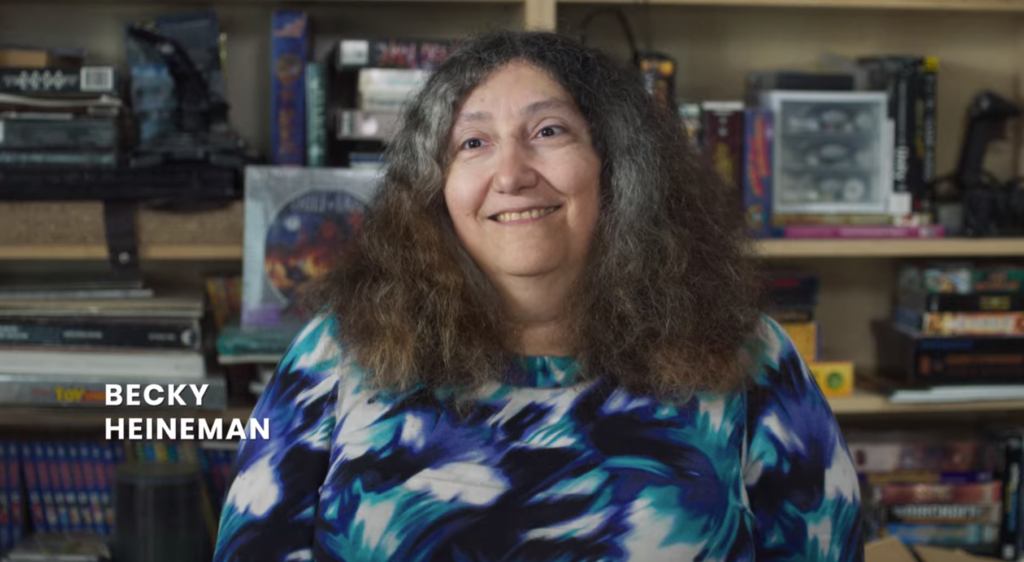
Netflix’s High Score documentary shows Trans players have always dominated esports
Netflix’s new documentary limited series High Score has proven a surprisingly informative look into the history of video games. Although focussed primarily on the growth of the US and Japanese industries, it’s also reminded contemporary players that queer and marginalised communities have been at the heart of gaming since its very inception.
One of the best examples comes in its first episode, “Boom & Bust”, which charts the giddy heights and drastic falls of the the early arcade scene. One of the stories told introduces viewers to Rebecca Heineman, who in 1980 won the Atari National Space Invaders Championship – becoming the first trans woman to dominate what we would now call esports.

“When I played video games back in the ’80s, I never believed I was actually any good at the game, or that I had any real skill,” Heineman says in High Score, “but it allowed me to be myself. It allowed me to play as a female.”
Space Invaders was phenomenally popular, one of the first real breakthrough successes in the early days of video gaming. It was also notoriously tough. Being good enough to compete in it was akin to being an elite Overwatch or Call of Duty player today – and Heineman was very good at the game.
After an unexpected win at the Los Angeles regional championships, Heineman was flown to New York for the grand finals, one of only five players from across the US to make it that far. After an astonishing one hour and 45 minutes of solid play – “good players last about three minutes; great players last 30 minutes”, Heineman says – she was declared the winner, with a still-astonishing score of 165,200.
Today though, out trans esports competitors are disproportionately likely to have to endure abuse, especially online. While any sportsperson, be it in traditional or digital fields, has to sadly endure the tribal bashing thrown by fans of opposing teams, trans competitors face an additional burden to even gain acceptance in their chosen games. Tidal waves of online transphobia typically batter them should they reach the higher tiers of professional play.
The hate can have career-ending impacts, too. In February 2016, League of Legends player Maria ‘Remi’ Creveling, the first woman – trans or cis – to compete in the game, stepped down from the starting line-up of the now-defunct Renegades, after suffering a huge volume of abuse. Tragically, she passed away in December 2019.
Yet the abuse hurled at trans esports players, often driving players from the sector or discouraging them from competing in the first place, has impacts beyond the immediate sporting elements – it potentially robs the wider gaming industry of great talents in the development and creation of future games. Heineman herself was more than just an incredible competitor – she went on to develop and publish games herself, including co-founding Interplay Entertainment and notably designing The Bard’s Tale III, adding playable women characters at a time when it was said to be “too difficult” to bother doing.
Competing in esports can be as physically demanding as traditional sports – pro players regularly talk about ageing out in their mid-20s, as reflexes start to slow, losing them those crucial milliseconds that could decide the fate of a match. The same passion and talent that propels a player to the top of the esports leagues can see them transition to coaching or managing their own teams, or creating the next major gaming hit. All this potential is gone if someone is chased from the industry simply for ‘gaming while trans’ – or daring to be the best at a competitive game.
Four decades ago, Heineman showed that trans players can dominate in esports, then went on to help build the modern games industry. The next Heineman could be out there now, crushing the competition and with the dreams and ability to usher in the next generation of gaming – but esports companies, developers and league promoters alike, need to work harder to stamp out the transphobia and online abuse players can suffer now to ensure they continue to bring their talents to the industry in future.
All six episodes of High Score are available to stream on Netflix now.






